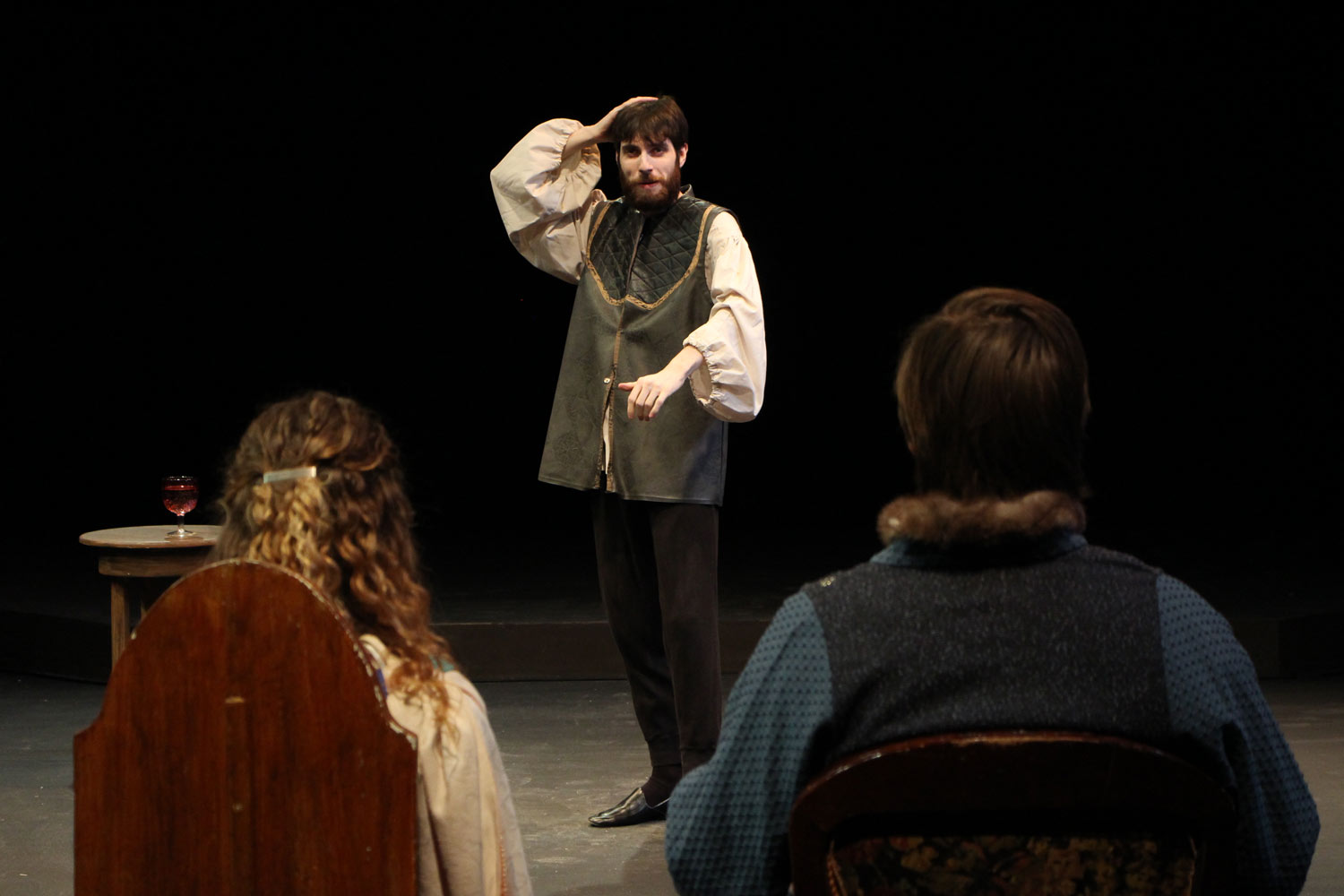HOW CAN A student hope to glean new understanding from one of the most famous texts in literary history? By bringing it off the page.
English graduate student Colin Gibbings thought the act of performance might offer insights into Geoffrey Chaucer’s The Canterbury Tales that can’t be grasped from a solitary reading.
“There is actually a distinct difference when you perform it versus when you read it,” Gibbings says.
Drawing on his dual background in English and drama, he focused his master’s project on exploring that idea—on turning a live performance into an act of scholarship. A full house turned out for his on-campus debut in the role of Chaucer last April.
Students and scholars of Chaucer often read The Canterbury Tales aloud, notes Gibbings’ supervisor Peter Robinson, a professor in the Department of English, but the work has rarely been recreated as Chaucer originally presented it: before a live audience, in its original Middle English.
Under Robinson’s guidance, Gibbings spent months studying the language to reconstruct as accurately as possible what Chaucer might have sounded like at his debut of the tales around 1389. Along the way, he gained a new perspective on the text.
He cites, for example, the long-running scholarly debate about the existence of a distinct narrator character within the work. The narrator of the tales comes across at times as foolish and naïve about the events he describes, leading many to speculate that Chaucer intended the narrator to be another comical character within the story.
But when performing the tales, Gibbings says, it becomes clear that Chaucer the author and Chaucer the narrator are one and the same; the narrator’s strange shifts in personality are simply Chaucer playing with his audience.
“He’s just telling a funny story. He’s just spinning a yarn, and that’s sort of what performance is all about.”
The long hours Gibbings spent memorizing the text and examining the possible interpretations of each line also gave him a deeper emotional understanding of the tales and their characters.
He gives the story of the Parson as an example. “Unlike the rest, it seems almost indisputably sincere. Sometimes going through it, I would actually cry because of the honesty and sincerity of the character.”
While Gibbings was careful “not to make Chaucer more interesting than he already is” by inserting meaning that wasn’t apparent in the text, he acknowledges that the decisions he made as a performer are ultimately just one interpretation of the story.
Saskatoon audiences have responded well to Gibbings’ approach. Crowds have turned out to hear his take on Chaucer and other medieval authors at venues ranging from the pub to the cathedral.
Gibbings wrapped up his MA last fall and plans to continue exploring the performance of classic texts through an MFA program at the University of Calgary.
Learn more:Watch the full video of Colin Gibbings’ debut performance as Chaucer on Youtube. |
